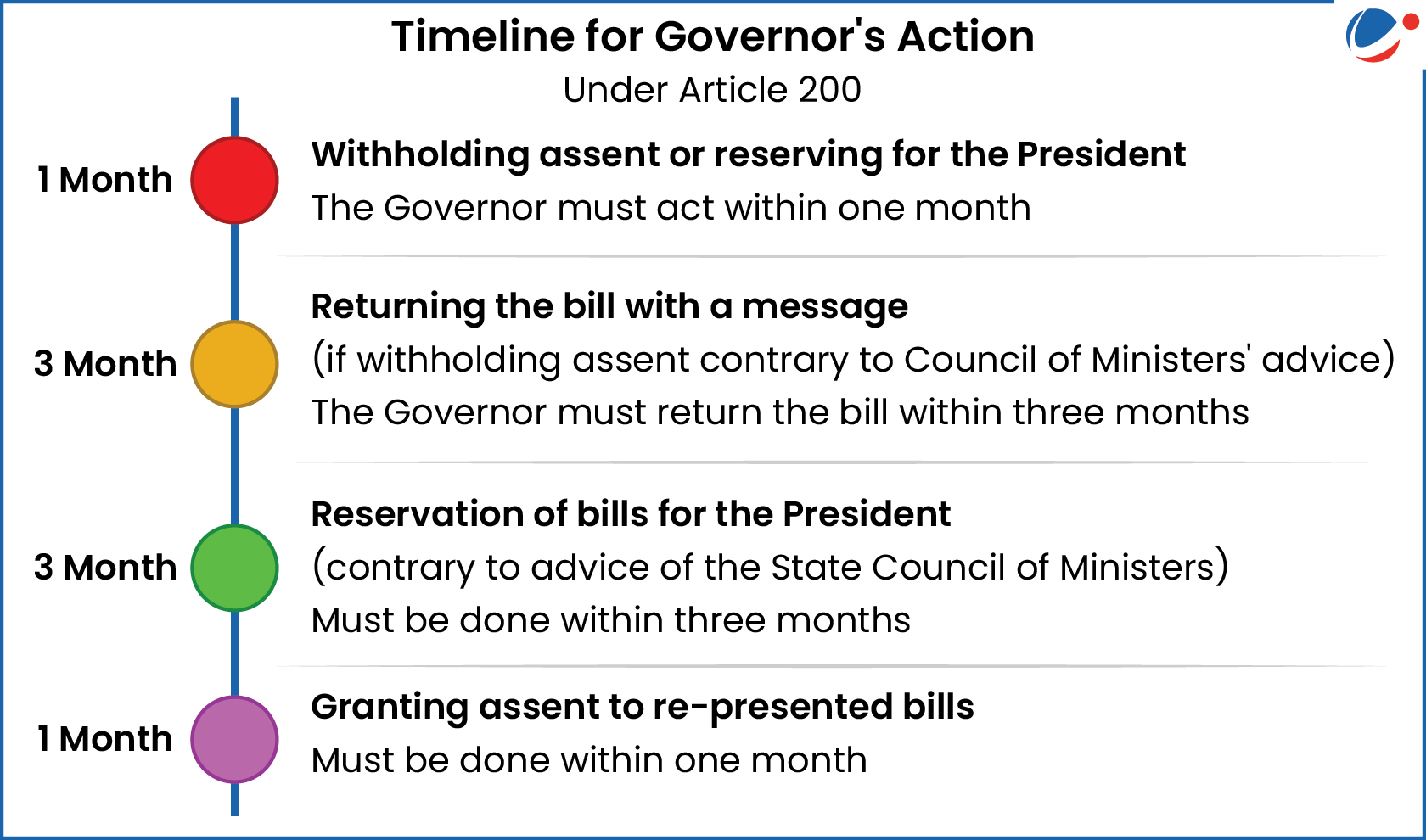SC, in a landmark ruling, addressed Governor's powers concerning assent or withholding of assent to bills presented by State legislature under Article 200 of the Constitution.
- SC invoked Article 142 to pass this order, using its special powers to ensure complete justice.

Key Takeaways from State of Tamil Nadu vs Governor of TN case
- SC ruled, Constitution does not allow Governor to exercise "absolute veto" or "pocket veto.": The term "as soon as possible" in Article 200 underscores urgency in the Governor’s decision-making.
- Absolute Veto: Withholding assent to bill passed by legislature.
- Pocket Veto: Governor takes no action on a bill and keeps it pending indefinitely.
- Governor Cannot Send Bill to President Once Re-presented: If the bill is unchanged, Governor must assent to it, unless the bill differs in content from original one.
- Governor Must Act on Aid and Advice of State Government: Court ruled, Governor has no discretion & must act as per Council of Ministers’ advice.
- Only exception: Bills affecting powers of High Court or Supreme Court (Art. 200)
- Court established clear timelines (see image) for Governor’s actions under Article 200 to ensure expediency.
- Failure to comply with these timelines would make the Governor's inaction subject to judicial review.
Assent to Bills under Article 200
|




